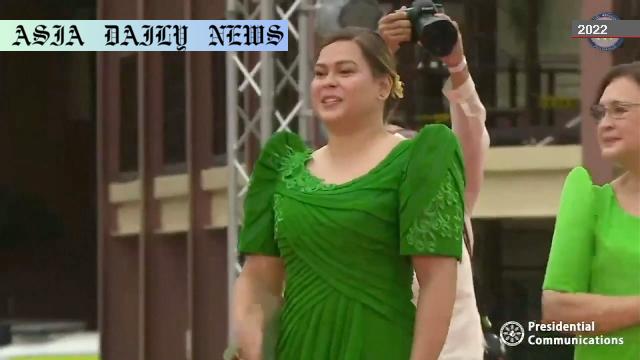Impeachment: Vice President Sara Duterte impeached by Philippine lower house; Senate trial to determine removal from office.

The Impeachment of Vice President Sara Duterte
Vice President Sara Duterte has made history by becoming the first Philippine vice president to be impeached. The Philippine lower house of Congress, in a dramatic turn of events, voted in favor of her impeachment, claiming misuse of public funds and other offenses. The process gained support from 215 lawmakers, surpassing the one-third threshold required for such a motion in the chamber. This decision has now propelled the case to the Senate, where a trial will determine whether Duterte will be removed from office.
The Allegations and Political Ramifications
The allegations against Duterte revolve around accusations that she misused public funds and engaged in other offenses that compromised public trust. While these allegations are serious, the impeachment is not just a legal process but also a reflection of the underlying political turmoil in the Philippines. Apart from legal implications, this decision will likely amplify the growing discord within the country’s political structure, particularly between the camps of Vice President Duterte and President Ferdinand Marcos Jr.
The Duterte Legacy and the Marcos Alliance
As the daughter of former president Rodrigo Duterte, Sara Duterte carries a political legacy that enjoys a significant following within the Philippines. Her alliance with Marcos during the presidential elections played a crucial role in uniting their respective bases of support. However, this partnership started unraveling last year, as tensions between their families mounted. President Marcos has publicly expressed his dissatisfaction with the impeachment, dismissing it as a ‘waste of time.’ Despite his stance, the process has moved forward, signaling fractures in their once-solid alliance.
Senate Trial: Next Steps
With the lower house’s move, all eyes are now on the Senate, which has the responsibility to conduct an impeachment trial. This trial will examine the evidence against Vice President Duterte and ultimately decide her fate. Historically, impeachment trials have polarized the political landscape, and this one is no exception. If the Senate votes to remove Duterte, this will mark an unprecedented episode in Philippine history, adding to the already tense atmosphere in the country.
Impact on Political Stability
The impeachment has stirred speculations about its impact on the political stability of the Philippines. Many political analysts believe it could weaken Duterte’s base and create further division among lawmakers. At the same time, the impeachment has given rise to questions about its timing and the potential motives behind it. Some critics argue that the move is less about justice and more about neutralizing a political opponent in a rapidly shifting political landscape.
Public Reaction and Implications
The public reaction has been polarized, with Duterte’s supporters condemning the move as a political witch hunt, while her critics view it as a necessary step to uphold accountability. As this story unfolds, questions about the rule of law, the integrity of political processes, and the future of the Philippines’ democracy loom large. The outcome of the Senate trial will not only determine Duterte’s political career but also significantly impact the Philippines’ political direction.
Conclusion
The impeachment of Vice President Sara Duterte is a significant and unprecedented event in Philippine politics. As the process moves to the Senate, it promises to further polarize the country and challenge its democratic institutions. Whether this leads to greater accountability or further turmoil remains to be seen. The repercussions of the Senate’s decision will resonate well beyond the Duterte-Marcos feud, shaping the future political landscape of the Philippines.
Commentary
A Symbol of Accountability or Political Turbulence?
The impeachment of Vice President Sara Duterte marks a historic and controversial chapter in Philippine politics. At its core, this event underscores the challenge of balancing accountability with political strategy. The accusations of misusing public funds are serious, pointing to a need for due diligence and transparency in governance. However, the manner and timing of this impeachment bring up questions about whether it is motivated by justice or political rivalry.
The Fragile Dynamics of Political Alliances
When President Ferdinand Marcos Jr. and Vice President Duterte teamed up during the presidential campaign, it signaled a powerful political alliance. Yet, the unraveling of their relationship over the past year reflects the fragile nature of such coalitions. Marcos’s dismissal of the impeachment as a ‘waste of time’ indicates his desire to distance himself from the controversy, but it also highlights the growing divide within their camps. This rift holds broader implications for the stability of Philippine governance.
Looking Ahead
As this situation unfolds, it is crucial for the Senate to conduct a fair and thorough trial, ensuring that the principles of justice are upheld. The process should serve as a reminder of the importance of checks and balances in a democratic society. Regardless of the outcome, the impeachment reflects the complexity of governing in a politically charged environment. It will likely set a precedent for how political conflicts are addressed in the future.


